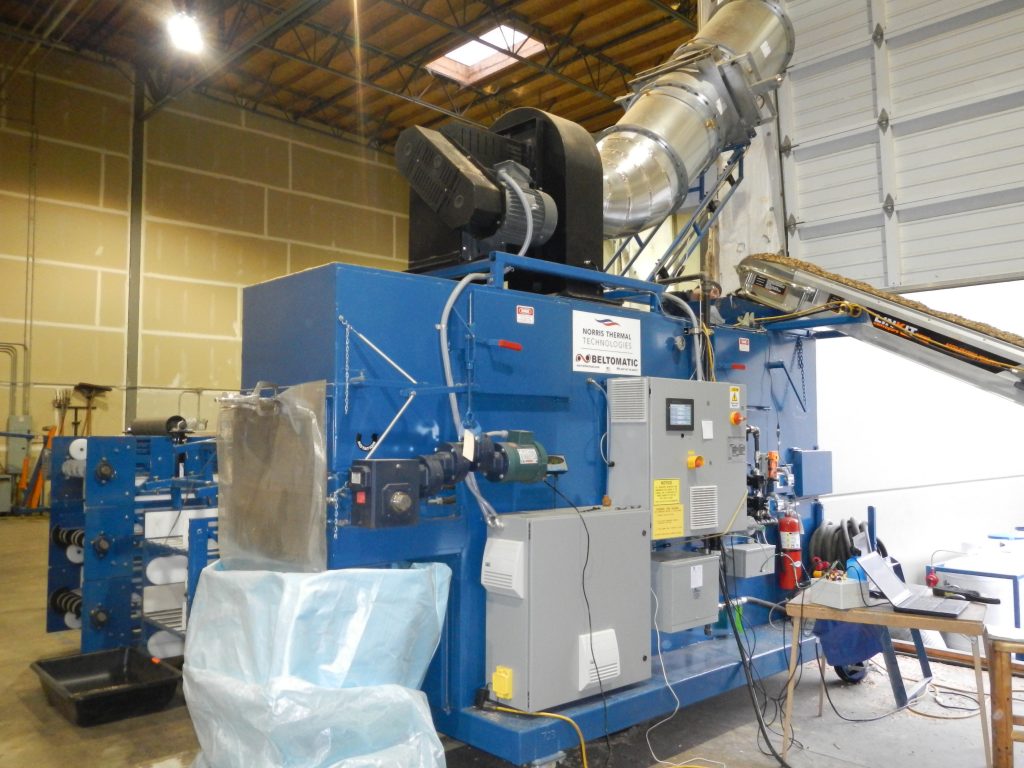The Department of Energy has announced that Forest Concepts has been selected to receive $400,000 in funding for the development and application of a method to add biomass Radio Frequency (“RF”) preheating to the front end of conventional and advanced dryers.
This project will focus on preheating of cold, high moisture particulate biomaterials to reduce drying time and energy. The throughput of biomass dryers is limited during the winter season, and fuel consumption is high due to the amount of energy needed to preheat the material before drying actually begins. Although RF and microwave drying has been proposed and studied in the past, little attention has been paid to the front end of dryers. The results of this project will be particularly applicable to green wood chips, forest residuals, “wet bales” of corn stover, and freezer-stored industrial hemp.
The general approach will be to design preheaters as a bolt-on module for both conventional and new dryers. First applications will be to add RF preheating to Forest Concepts’ advanced modular dryer and its high pressure, low temperature (HPLT) belt dryer. Additionally, the technology will be made available to existing dryer manufacturers.
We believe that RF heating of high moisture, cold particulate biomaterials is now technically and economically feasible due to advances in the industrial RF manufacturing industry. We will overcome limitations to deployment through experiments that derive necessary applications engineering data sets for relevant bio-based materials, and the expected variance of those properties with moisture content, material type, and temperature. Forest Concepts is teaming with Dr. Juming Tang at Washington State University and Dr. Hogae Yi at The Pennsylvania State University to conduct fundamental engineering science studies and develop kinectic models.
Since 1998, Forest Concepts’ innovations through the woody biomass chain simplify logistics, reduce costs and energy consumption, and improve feedstock quality and availability for conversion to biofuels, biochemicals, and biopower. For a complete listing of our federally-funded projects, please see our Awards page.

